Northeastern recording artist wins GRAMMY U for work that touches on ‘love, fear, guilt, and desire’
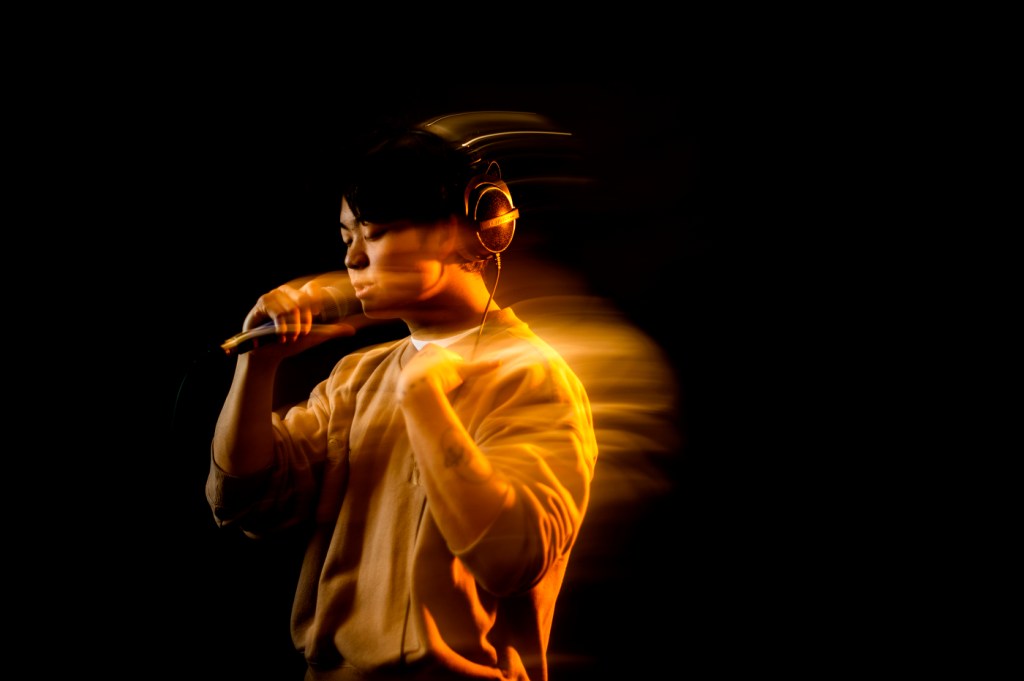
The artistic life is often marked by caveat and interruption, with an uncertain mixture of luck and circumstance that often, when all is said and done, reads like destiny.
Kai Tsao’s musical journey has, so far, played out in like fashion—and the fourth-year Northeastern student is off to an award-winning start. Having arrived at Northeastern in 2018 as a business major, the singer-songwriter flipped the script and dove headfirst into music, honing his skills and eventually learning how to digitally produce his own songs.
“I was basically hopping around the studios on campus, just recording and mixing,” says Tsao, who is the head of recording for Northeastern’s Green Line Records. “I did that for eight to 12 hours a day sometimes.”
What followed, over the course of several COVID-disrupted years, was a series of album projects, each following a specific emotional theme (“Love, fear, guilt, and desire,” he says). One of his songs, “MUCH2HIGH,” was selected for a GRAMMY U award—university-level recognition given to college students pursuing a career in music by the National Academy of Recording Arts and Sciences.
Tsao, who is now majoring in music, says the award came “very unexpectedly.” He recalls GRAMMY U representatives coming to Northeastern’s Boston campus during his freshman year, but he never followed up with them. Because all of their events took place in New York, Tsao says, he focused his attention more on his music, and less on professional networking.
So when it came time to submit a piece of work to the GRAMMY U program, it took Tsao only a couple of minutes to upload and attach “MUCH2HIGH” to the email and send it off. Two months later, he got word that his song was selected among the winning music videos, and that he was headed to the Grammy Awards.
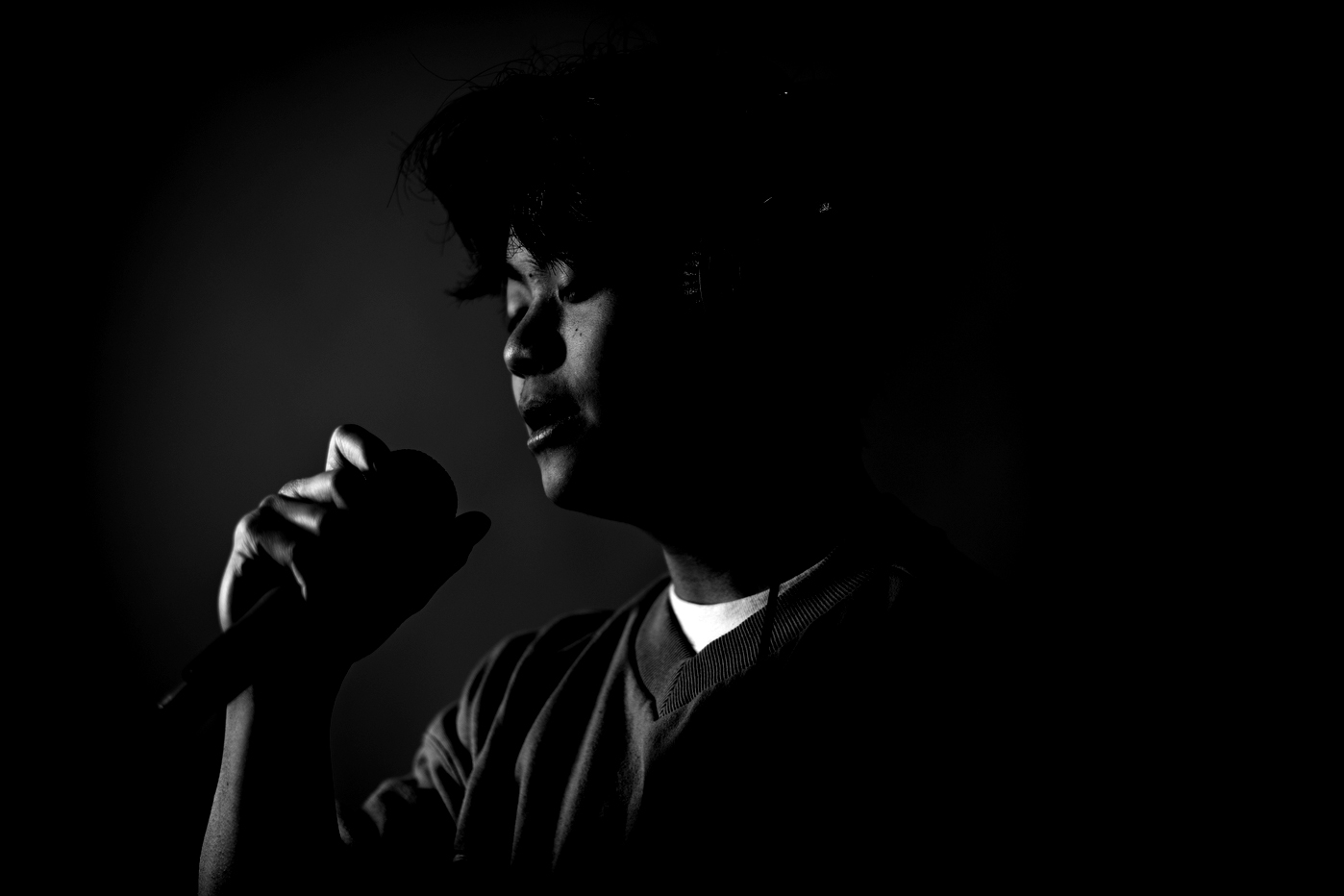
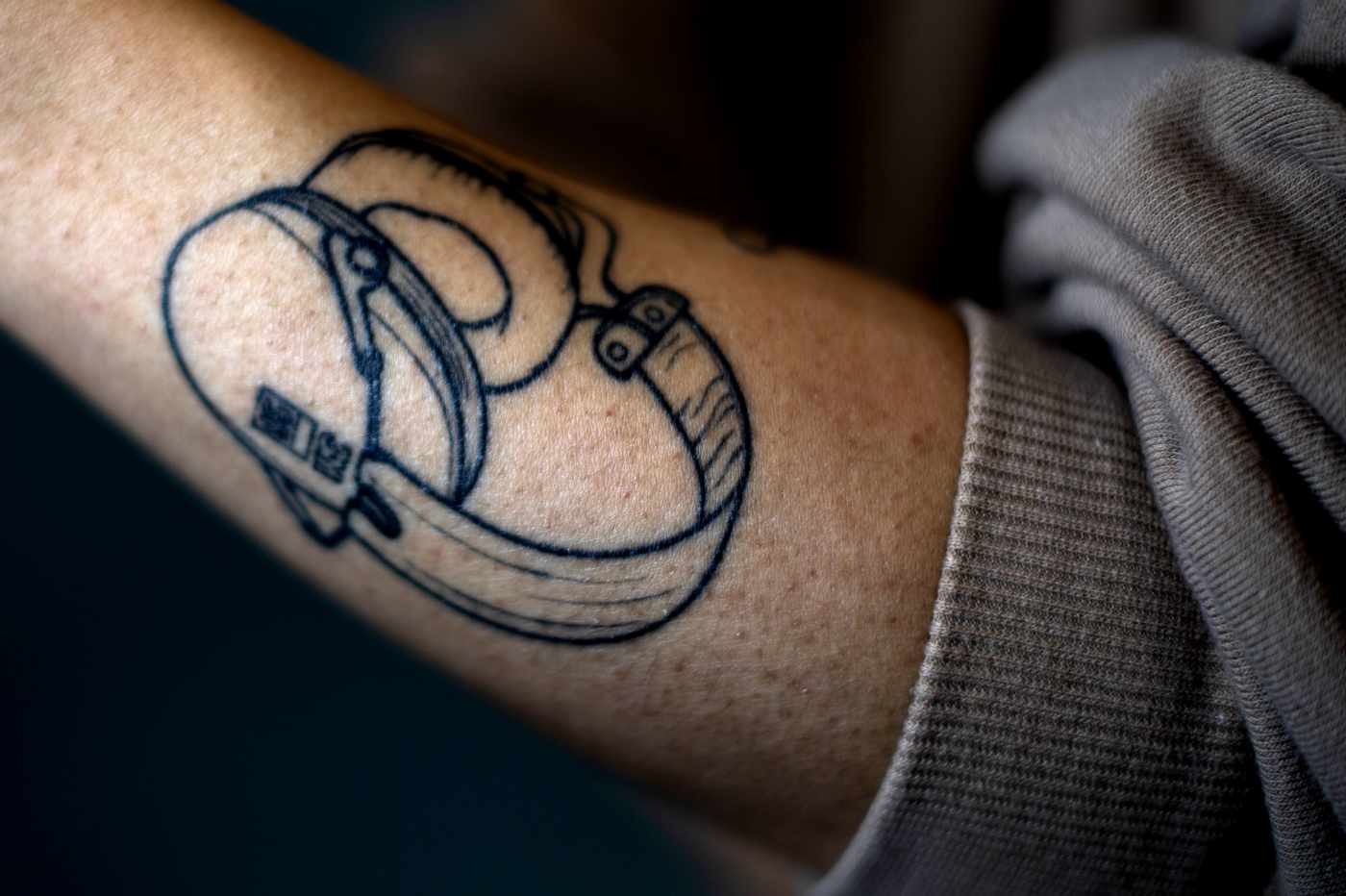
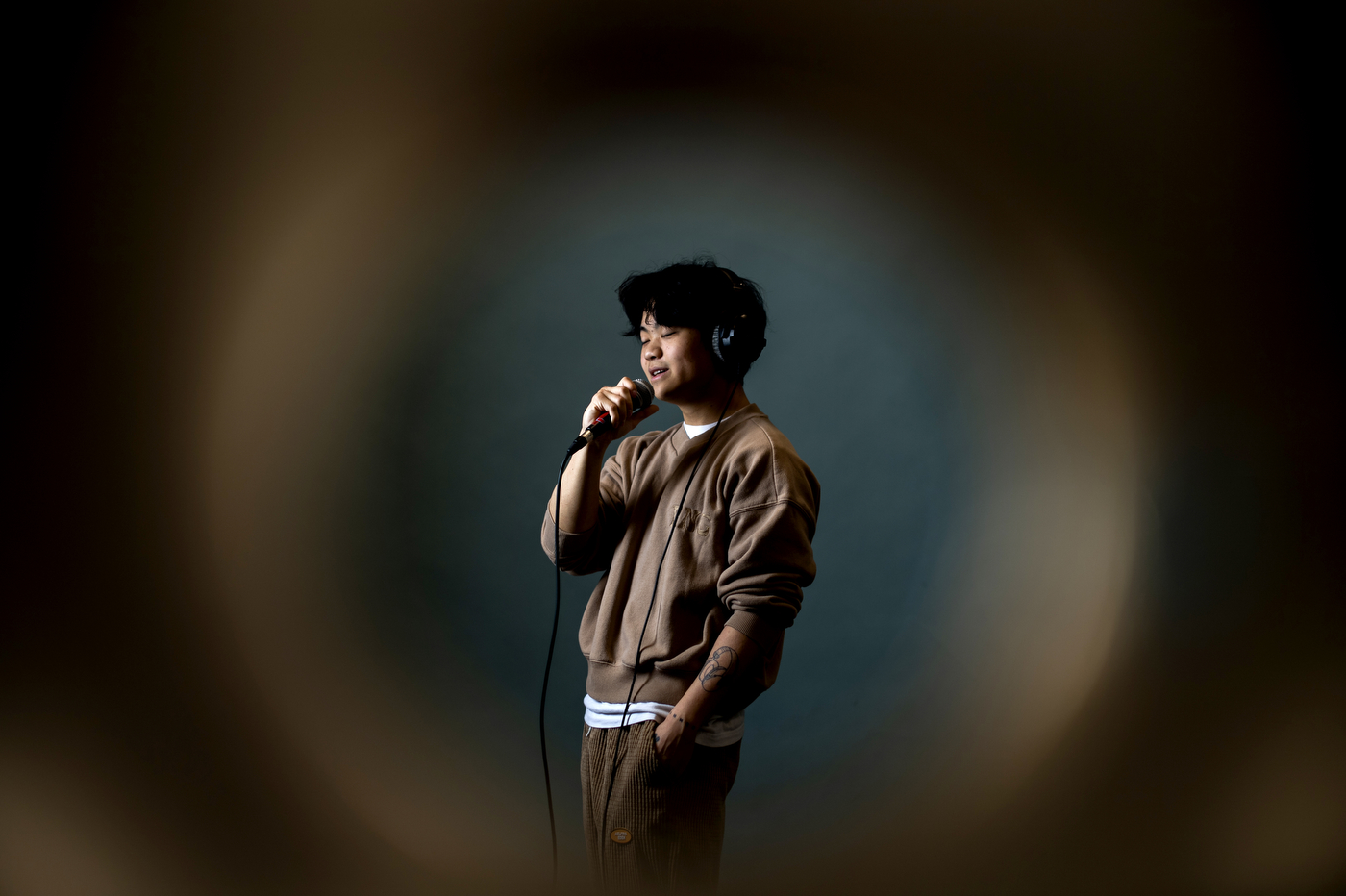
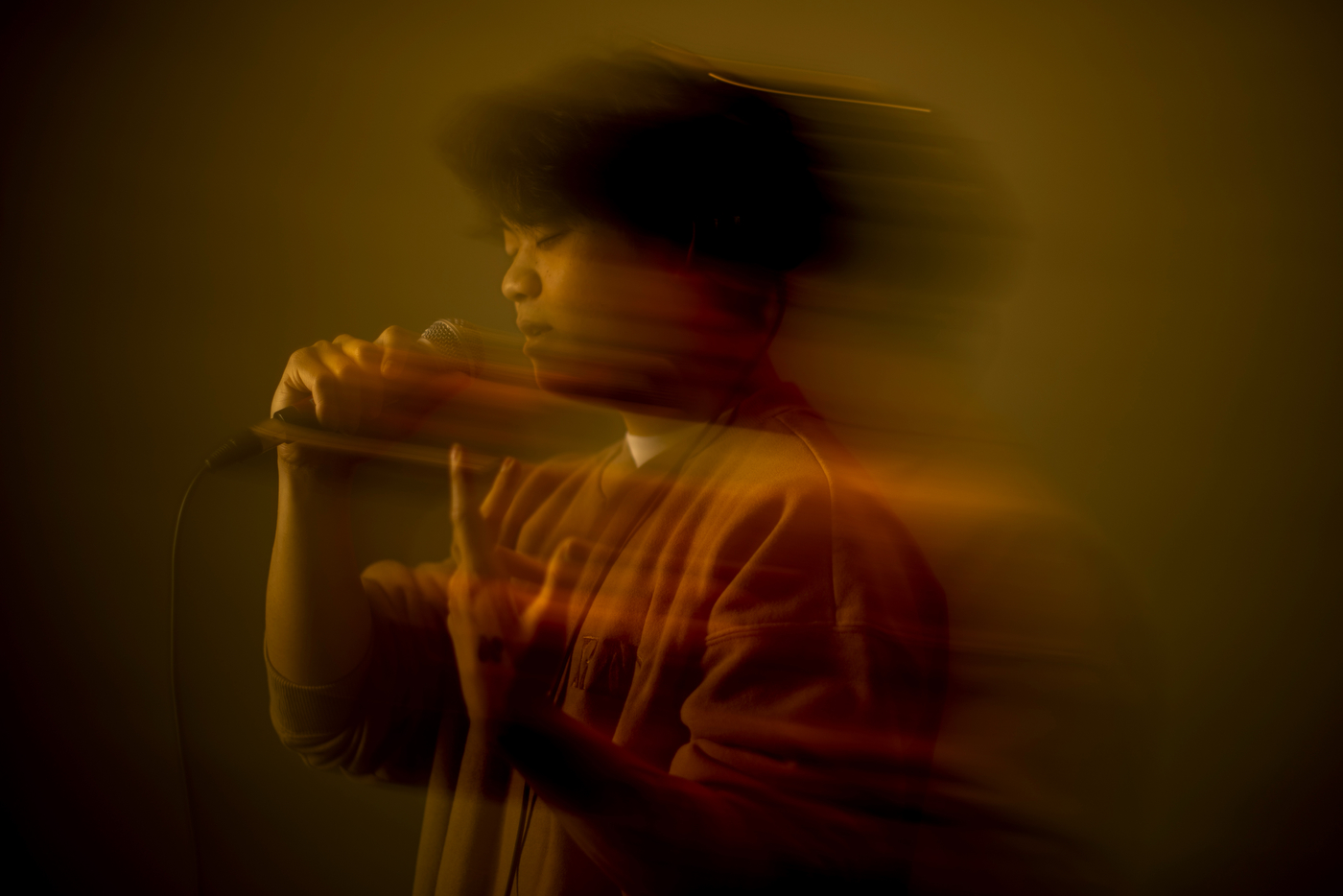
For someone who eschews attention and “undersells” himself, Tsao says the award was deeply gratifying.
“It was a larger-than-life moment for me,” Tsao says. “It was one of the first times I feel like my art was recognized in a professional way.”
The GRAMMY U event took place in the runup to the award ceremony on April 1, and included a masterclass by filmmaker and music video director Hannah Lux Davis, who has worked with megastars such as Ariana Grande, Demi Lovato, and Katy Perry, among others.
“It was really interesting, and it was cool to meet the other winners,” Tsao says.
Growing up in the San Francisco Bay Area, Tsao was schooled in piano and music theory from an early age. In the late 1990s, his parents immigrated to the United States from Taiwan, where he first discovered Taiwanese “soft rock pop”—a genre that would have a lasting influence on him and which he describes as his own artistic “intuition.”
But the pressure to achieve—a burden many Asian Americans face as a result of generational expectations—coupled with feelings of alienation saw him abandon piano around age 16 while in high school, only to pick it back up as a way of channeling those very same anxieties into creative expression.
Now, having trained himself in audio engineering, Tsao is a recording artist who also understands the world of digital sound more than many of his peers. This dual expertise, he says, has shaped his art—as well as his approach to sound.
As a result, Tsao says he tries to create songs that are “wildly digital.”
“I want it to sound like you have no idea how I made this,” he says, adding that his songs are often “extremely layered, complex, convoluted.”
“But I want to maintain this very organic soul of real instrumentation,” Tsao says. “As much as I am an electronic and digital producer, the foundational elements for the songs I write are always piano, guitar.”
Tsao hopes to continue making music and helping other artists, through his studio work, after he graduates.
For media inquiries, please contact media@northeastern.edu.






